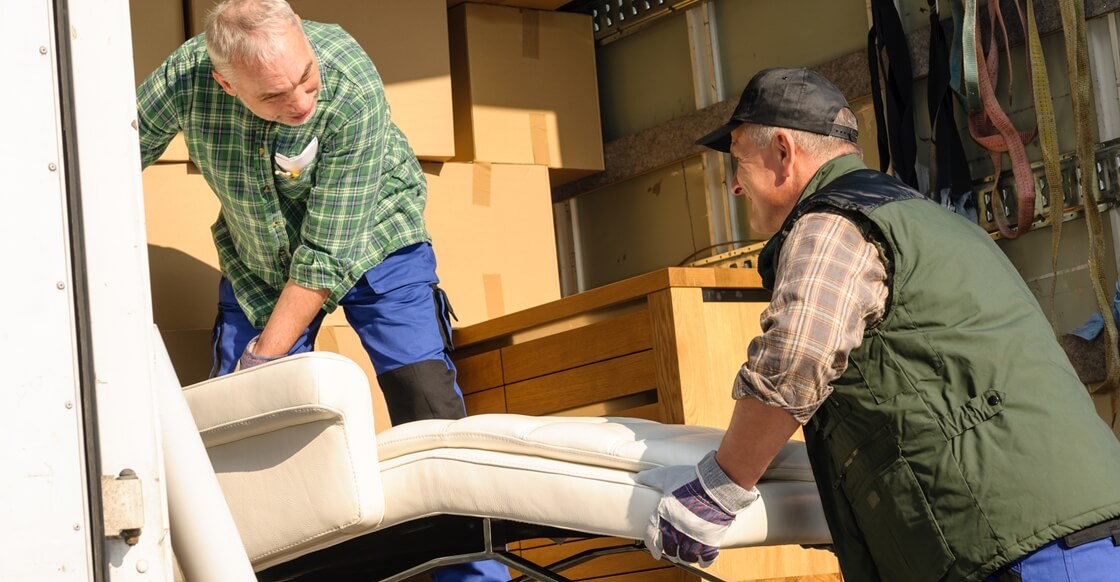Moving house is one of life’s most exciting events. On the downside, it is also one of the most stressful events that life will throw our way.
The logistics of moving home can seem overwhelming at times. But there is a lot that people can do to help make the whole process of moving home a lot easier and far less stressful.
At U Store It, we have been helping people to move home for decades. Our self-storage units are often used as a “buffer zone” that offers temporary storage to help ease the burden and smooth the logistics of the move. Whether you need to declutter as you prepare, or maybe you need a little extra time to get your new home ready, self-storage units are commonly used to help when moving home.
As part of our service, we have compiled a guide that can be used to create a comprehensive checklist to help you prepare for your move. We have also included a host of moving tips and advice to help smooth the process of moving home.
Moving House Timeline
The more time you have to prepare for your move, the easier it is. In this part of the moving house checklist, we will count down the three months running up to the move and what you can do at each stage to help smooth the process.
If you have longer than that to prepare, then there is no harm in starting to prepare a little sooner.

Three months before moving day – Decluttering
You can save yourself a lot of hassle by preparing in plenty of time. Start as early as you can, and about three months before moving day is the perfect time to start decluttering your home. If there are obvious items that aren’t moving to the new home and aren’t needed, then now is the time to dispose of them.
This creates valuable space (both in the home and the head!) and paves the way for a successful packing campaign!
Create a packing routine
Many things around the home can be packed away nice and early. Create a routine that sets aside a little time each day to pack non-essential items. Even 30 minutes a day will soon make a large dent in the workload.
Two months before moving day – Packing & Organising
The packing process continues through the entire run-up to the move. At this stage of the process, there should be more organisation involved. You now have to begin to think about what items need to be left to the last moment and what you can live without.
For instance, freshly squeezed orange juice might be your Sunday morning treat. But, is the juicing machine that critical? Now is the time to become a little more circumspect about what needs to be packed.
Other things that need to be organised at this stage include:

Removal Company – Allow yourself plenty of time to organise the right removal company. Do some research to find a list of reputable companies, then compare them for suitability (cost, availability, insurance cover etc.)
Tip – Always check the movers are fully insured to compensate against potential damages.
Storage Requirements – Often it is not possible to move straight from old to new homes. Or you may have to renovate your new house and don’t want to move everything in straight away. If you are likely to need storage, this is the time to start exploring options.
U Store It has units in a range of sizes to suit all needs and offer competitive rates.
Start Gathering Paperwork – There is a lot of paperwork generated when moving home. Keeping all the relevant documents and information in one place will save a lot of time and stress. Items to include in the folder could be:
- Receipts and quotes
- House sale/purchase documents
- Relevant addresses and contact details
- Moving house checklist

Six weeks before moving day – Packing materials & utility companies
By now, the process should be well on its way. The removal company and storage are organised. Much of the less critical gear is packed and ready to go, and your paperwork is all in order.
Now is the time to start planning how to prepare and package your remaining furniture and belongings. Start by figuring out how much packaging material and boxes you will need. This doesn’t need to be precise, but just make sure you know where to get some in a hurry should you run out.
Tip – Create a proper labelling system. For instance, each box could be labelled with the room they are to go to, the contents, fragility, whether the box contains heavier materials, etc.
There are several things to consider when ordering packaging materials and packing boxes:
- Quality – Saving a little money by skimping on the quality of materials and boxes you use is never a good idea. Opt for the best possible quality to ensure your good travel and store safely. U Store It stocks a range of high-quality boxes and packing materials to help protect your belongings during the move.
- Box size – There is always a temptation to opt for the largest possible box, but this isn’t always the best option. Large boxes are difficult to handle and stack and can become overheavy, try to minimise your use of larger boxes. Also, for ease of stacking, try to purchase as many boxes of the same size as possible
- Consider specialist boxes – Boxes like wardrobe boxes that are custom designed to serve a specific purpose are a fantastic way to pack many types of items safely and securely.
Utility Companies
Take a deep breath for this one and prepare for some potential frustration. Utility companies can take time to get things moving, so it is best to contact them nice and early and just check what their procedures are. Also, what you need to do and when you need to do it. Doing this now will save valuable time nearer the moving day when things are already frantic.
Remember to keep the information you discover and the dates that action is required in your paperwork folder. There is more information about what to do about bills and utilities later in this guide.
One month before moving day – More packing, organisation, and confirmation
Now is when things usually begin to get a little more frantic! However, by now, if you have followed the steps in the checklist, you should be well ahead of the game!
At this stage, there is the proverbial packing to do. At each stage of the packing process, the decisions become trickier. What will I not miss for a month? And what are the essentials that you can’t live without?
Create a list of what needs to be packed and what needs to be left. A good idea is to create a list that has a timescale on it with details like:
- What can be packed now/next week, etc
- What needs to be packed the day before
- What is to be packed right at the last minute
- What can be moved to your self-storage unit

Tip – A methodical approach to packing is always more successful. Consider what rooms are least used and begin with them.
Another thing to do at this stage is to check that all the involved parties are aware of the times and that they are booked for the appropriate dates. (Time to dig out that all-important paperwork folder again )
It is also a good time to organise a moving crew as well! Of course, good removal companies will safely transport your belongings from A to B, but organising a crew of friends and family is always a good idea to help with all the finer details.

Two weeks before moving day
At this stage, it is mostly just a continuation of the packing process. However, there are some other essentials that you need to consider:
Confirm Again – This might seem like overkill, but the last thing you need come moving day is to find there has been a mixup with dates. Confirm with your removal company, storage provider, and any other necessary parties that everything is in place for moving day.
Mail redirection – Get in touch with your postal service and set up a mail redirection service set up for the correct dates
Self-Storage – If you have booked self-storage and haven’t used it yet, a quick call to confirm everything is ready is always recommended.
One week before the moving day
By now, it is normal to be feeling a little panicked. However, if you have followed the guidelines above, it should all be a breeze! But there is still a lot to do. Below are the main points to focus on during the week running up to moving day:
- Clothes Packing – Keeping aside only what you need for those last few days, now is the time to pack the remaining parts of your wardrobe.
- Settle Invoices – Moving day is hectic, so make sure that all necessary invoices are cleared ahead of time.
- Check your route – Make sure you know the route to your new home and your car or vehicle is ready for the journey.
- Check your packing materials – Inevitably, moving day will find you packing the remainder of your gear. Toiletries, bedding, clothing and kitchen gear are usually among the last-minute items. Make sure you have plenty of boxes and materials to finalise your packing.
- Cleaning and maintenance – throughout the week, cleaning each room as it is emptied makes cleaning easy. Also, any last-minute repairs that are needed can be carried out.
- Check the weather forecast for the day of your move – Forearmed is forewarned! You may not be able to do anything about the weather on the day of your move. But at least if you know there is rain, or worse, forecasted, you can take steps to account for it.
Check with your utility companies – Make sure that all the utility companies are aware of the move.


Moving Day!
Start by having an early night the night before! This will ensure you are fully rested and prepared for the day ahead. Among the items that should be on your list for moving day are:
- Make sure the removal company have the right address
- All cupboards, attic space, sheds, etc., are emptied
- Reading all utility meters as you leave
- You have the keys to your new property
- All last-minute items are packed and ready to go
- A final clean and look around – Once the moving company have removed all your belongings, make sure each room is empty and even give them a final quick clean
And that’s it! Enjoy your new home without much of the associated stress and headaches of moving home.
Now let’s have a look at some of the finer details to consider when moving home.
How much does moving home cost?
This is difficult to quantify as there are many variables to consider. Each of these will have a bearing on the cost of moving home. Below is a list of factors that will affect the cost of the move, getting the right information for each of these will allow you to calculate the cost of your house move.
- The cost of the removal firm and any required insurance
- Van hire or travel costs
- Self-storage unit
- Professional cleaning (if needed)
- Any new furniture or white goods required for your new home
- Utility cancellation, transferring, or connection fees
- Packaging and boxes
These cover the main expenses of a house move, and knowing the cost of each will give you a “ballpark” figure of the costs.
Tip – Once you have the estimated costs of your move, you can set a realistic budget and stick to it. This can stop costs from spiralling and becoming overwhelming.
Who do I need to contact when I am moving home?
Making sure that you are aware of everyone that needs to be contacted is really important. Contact these in plenty of time to allow you to account for clumsy administrative processes (see number 3 – Six weeks before moving day for details)
Who you need to contact depends on individual circumstances, but the most common are all included in the following checklist:
U Store It – Your perfect moving day partner
We hope this guide helps you to create the perfect moving day checklist. Moving day can be more about the excitement of the move and less about the stress if you plan carefully and leave yourself a little breathing space by beginning early.
If you need any storage space to help make your move go easier, then U Store It can help. With facilities throughout Ireland and unit sizes to meet all needs, we can help to streamline the complexities of moving home. Whether you need a unit for two weeks, six months, or longer, we can tailor a storage unit exactly to your needs.
Why not contact us today to find out more about how a self-storage unit can help when moving home?




